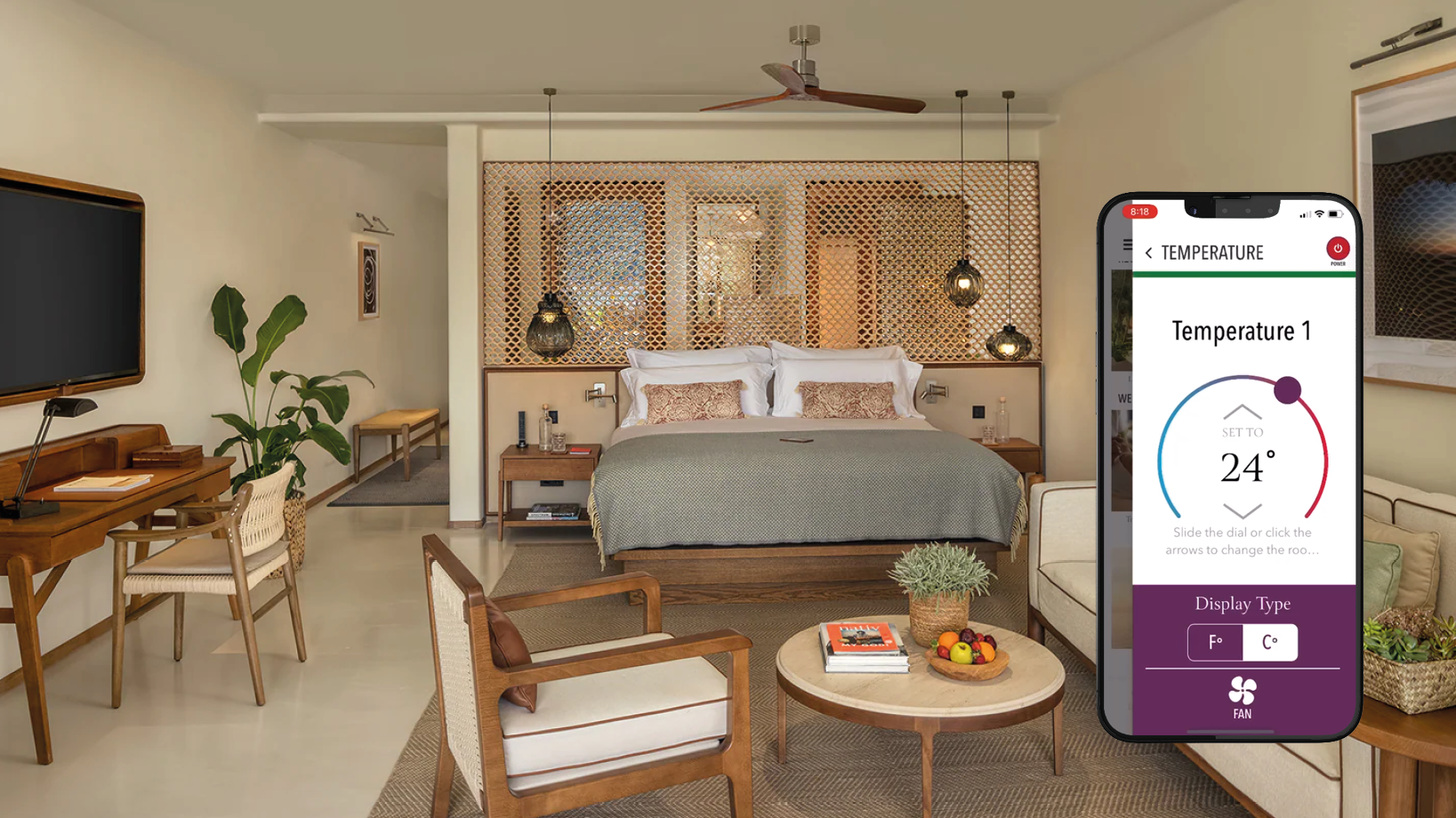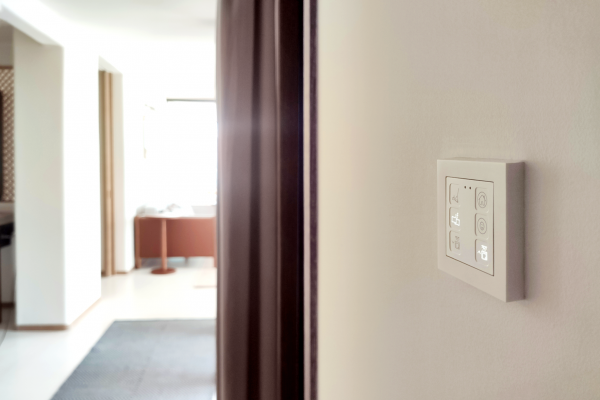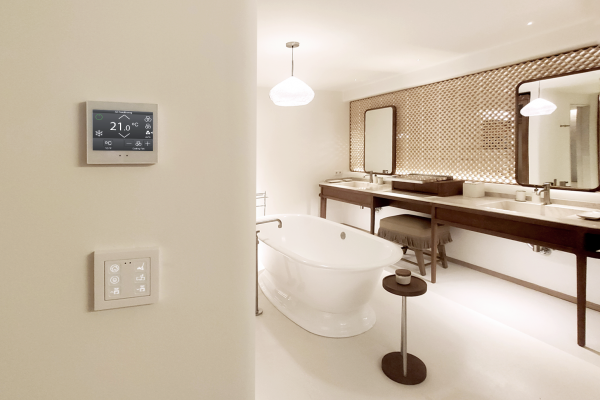By KNX UK Manufacturing Member Vidar Thomassen – Director, Zennio UK.
As building specifiers and developers focus on ways to reduce their carbon footprint and operate in a more environmentally friendly manner, one industry that has the potential to make a significant impact is the hospitality industry.
Hotels consume a significant amount of energy and produce a large amount of waste, so finding ways to enhance sustainability in hotel buildings is crucial. One solution to this problem is the use of KNX building automation technology.
KNX is the only international standard that is used to control and monitor a building’s systems, such as heating, ventilation, air conditioning (HVAC), lighting, and security. These systems are connected through a network and can be accessed and controlled remotely. It can help hotels reduce energy consumption, improve operational efficiency, and enhance the guest experience.


As in life, information is the starting point to approach the problems we aim to solve, so gathering information about what is going on in our building becomes essential to optimise the way the building – our hotel – works. Once we have the information we need to actually control those variables to be able to change them, and this is where KNX can really make a difference.
Starting with the rooms, sharing information between the hotel PMS (such as if the room is booked for that day or if the guest has already checked-in) and the HVAC control system (room occupancy for example) help reduce energy waste to a minimum as the AC will only turn on when the room is occupied and the guest is checked-in, but not if the hotel staff gains access to the room before the guest has arrived at the hotel.
This can be applied to all room controls (lighting, TV, sockets…) but also to common areas, and bearing in mind energy accounts for 3 to 6% of an average hotel running costs, eliminating energy waste can really make a difference.
Following on to the hotel staff, housekeeping is many times overlooked with teams left to wander through the hotel looking for rooms to clean. Monitoring “Make Up Room” and “Do Not Disturb” signals (MUR/DND) in a centralised system helps to increase the overall efficiency as teams can be assigned to those parts of the hotel that require more immediate attention. Combining this information with room occupancy and access controls enhances guest privacy and provides deeper knowledge of how our hotels work, for example giving information on how much time it takes to clean each room.
Another big cost centre, control systems help reduce drastically is Maintenance, as these solutions allow the use of predictive and preventive policies. Sorting issues before they become fatal or even before they appear decreases the amount spent in replacing broken units (for example AC units) but also minimises the risk of refunds to guests because things are not working or because there has been an AC leakage nobody noticed before.
Using the KNX open protocol ensures a robust, long-lasting control system combined with a Building Management System (BMS) that integrates with our hotel’s PMS is vital to get to know how our building operates in order to optimise all those little things that end up costing several thousands every year.


